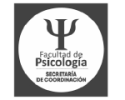In spite of rapid advances in evidence-based treatments for attention deficit hyperactivity disorder (ADHD), community access to rigorous gold-standard diagnostic assessments has lagged far behind due to barriers such as the costs and limited availability of comprehensive diagnostic evaluations. Digital assessment of attention and behavior has the potential to lead to scalable approaches that could be used to screen large numbers of children and/or increase access to high-quality, scalable diagnostic evaluations, especially if designed using user-centered participatory and ability-based frameworks. Current research on assessment has begun to take a user-centered approach by actively involving participants to ensure the development of assessments that meet the needs of users (e.g., clinicians, teachers, patients).
The objective of this mapping review was to identify and categorize digital mental health assessments designed to aid in the initial diagnosis of ADHD as well as ongoing monitoring of symptoms following diagnosis.
Results suggested that the assessment tools currently described in the literature target both cognition and motor behaviors. These assessments were conducted using a variety of technological platforms, including telemedicine, wearables/sensors, the web, virtual reality, serious games, robots, and computer applications/software.
Although it is evident that there is growing interest in the design of digital assessment tools, research involving tools with the potential for widespread deployment is still in the early stages of development. As these and other tools are developed and evaluated, it is critical that researchers engage patients and key stakeholders early in the design process.
This article includes within its bibliography the following research directly linked to Nesplora’s tests:
Díaz-Orueta U, Garcia-López C, Crespo-Eguílaz N, Sánchez-Carpintero R, Climent G, Narbona J. AULA Virtual reality test as an attention measure: convergent validity with conners’ continuous performance test. Child Neuropsychol. (2014) 20(3):328–42. doi: 10.1080/09297049.2013.792332
Iriarte Y, Diaz-Orueta U, Cueto E, Irazustabarrena P, Banterla F, Climent G. AULA-advanced virtual reality tool for the assessment of attention: normative study in Spain. J Atten Disord. (2016) 20(6):542–68. doi: 10.1177/1087054712465335
Cibrian FL, Monteiro EM and Lakes KD (2024) Digital assessments for children and adolescents with ADHD: a scoping review. Front. Digit. Health 6:1440701. doi: 10.3389/fdgth.2024.1440701












Este proyecto ha recibido financiación de la Unión Europea del programa de investigación e innovación
Horizon 2020 bajo el acuerdo Nº 733901
© 2025 Nesplora S.L.